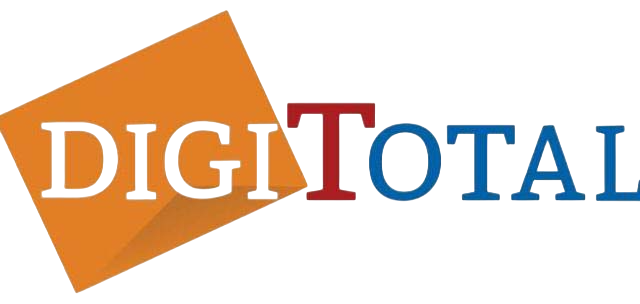Interested in Connecting with More Local Customers and Leads?
We might be a little biased—but understanding the key differences between traditional search engine optimisation (SEO) and local SEO can be a game changer when it comes to maximising your online results.
If you’re new to this idea, no worries! Since both strategies have distinct best practices, campaign approaches, and goals, we’ve outlined the essential info on organic SEO and local SEO below to help you decide which one aligns best with your business and brand objectives.
Ready to get started? Keep reading to explore basic SEO concepts, the differences between SEO and local SEO, and how to choose the right strategy for your next campaign.
The Basics of SEO and Local SEO
If you haven’t already dived into SEO, we suggest exploring some of our other blog posts covering best practices and the latest trends in digital marketing. SEO has long been a trusted method for driving and converting organic traffic online by:
- Improving your business’s ranking on search engine results pages
- Putting your brand in front of more relevant potential customers
- Helping turn warm leads into paying customers
- Enabling you to refine and better target your marketing messages moving forward
Sounds almost too good to be true? It’s not. Recent research shows that a well-planned and executed SEO campaign can deliver up to 100% ROI—in other words, you could potentially earn $1 back for every $1 invested.
For small business owners and solo entrepreneurs just starting with digital marketing, it’s crucial to understand industry best practices, how to support organic search results, and which factors most impact the success of your organic and local SEO efforts.
Here are some top industry resources that offer practical SEO insights and tips:
- HubSpot
- Ahrefs
- Moz
- SEMRush
As digital marketing evolves, so do SEO trends and best practices. Staying current is essential because tactics that worked well a few years ago might no longer be effective today—and sometimes, previously outdated methods become relevant again.
Beyond learning and strategy, remember that real value comes from data collected during live campaigns. While it’s important to build a solid understanding of SEO tools and platforms before investing, nothing beats tracking actual user behaviour and analytics once your campaign is active.
This live data helps you identify which marketing efforts generate real ROI and which need adjustment to better target your audience.
SEO Versus Local SEO
For those in our community who have some experience with SEO or have explored best practices and tested various tools, understanding the distinction between SEO and local SEO is a vital next step in crafting a successful marketing campaign.
If you’re new to these concepts or unsure when to prioritise one over the other, keep reading.
SEO 101
At a high level, SEO campaigns focus on optimising your website to attract, engage, and convert leads across a broad geographic area. Sounds complex? It’s simpler than it seems. Essentially, SEO campaigns can be designed and executed on a national scale—meaning your target audience across Australia (or any chosen country) who use search engines can become potential customers for your brand.
While some eCommerce brands might consider a global audience, we advise caution here—different countries, cultures, and languages play a crucial role in shaping an effective SEO strategy. Additionally, search engine traffic data is typically segmented by country. For example:
- Target country: Australia
- Potential keyword or search query: “women’s workout tights”
- Search volume: 5,000+ monthly searches
This keyword shows strong search interest within Australia. However, language and cultural differences mean the same term might perform differently elsewhere. For instance, in the US, workout ‘tights’ are often referred to as:
- Leggings
- Yoga pants
- Workout gear
While “women’s workout tights” might get significant searches in Australia, this exact phrase would see fewer hits in the US due to these linguistic variations.
Though simplified, this example highlights the importance of tailoring SEO efforts to the right region. Moreover, SEO campaigns typically require specifying the geographic focus for effective targeting. Businesses serving customers nationwide—such as many eCommerce brands—are well-suited to broader campaigns.
When Should You Consider Local SEO?
Local SEO becomes crucial when:
- Brick-and-mortar businesses: Those serving customers primarily within a specific area, like medical practices, childcare centres, or retailers without shipping options.
- Location-specific campaigns: For instance, a Labour Day sale might need regionally tailored campaigns because different Australian states celebrate the holiday at different times.
- Businesses offering services/products limited to certain locations: Many service providers, such as dentists, typically serve only their local community, unlike eCommerce stores that ship nationwide or internationally.
If your product, service, or brand is best targeted at local customers, keep reading to discover why a focused local SEO strategy could be your best move.
Localised Campaigns for Stronger Organic SEO Results
For both B2B and B2C companies, a local SEO approach often delivers a better return on investment. While some eCommerce businesses operate beyond geographical boundaries, many products and services perform best when promoted locally.
Examples of businesses that benefit most from localised SEO include:
- Dentists, General Practitioners, Chiropractors, and Allied Health providers
- Car mechanics and automotive repair shops
- Towing and commercial transport services
What do these businesses share? They primarily serve clients within a defined geographic area and typically cannot extend their services far beyond their local community—so they should focus on ranking highly in local search results.
Additionally, some online retailers may not offer international shipping yet. If you’re currently targeting a whole country, it may be worth refining your approach to include local SEO tactics that address regional differences and demographics more precisely.
How to Maximise Local Search Results?
Based on the insights above, you might already have a clear understanding of which SEO approach—standard or local—is the most suitable for your business and customer base. If you operate a brick-and-mortar business, like a restaurant, and are aiming to attract more local customers through online search, there are several strategic actions you can take to enhance your local SEO visibility.
Set Up and Optimise Your Google My Business Profile
Have you ever searched for a nearby business and noticed a highlighted box with essential information—address, phone number, opening hours, and a map—appear on the right-hand side of the Google search results? That’s a Google My Business (GMB) profile in action, and activating yours is one of the most impactful steps for local SEO.
GMB gives local customers a fast, easy way to find you, learn about your services, view customer reviews, and even get directions—all without clicking through to your website. Verified businesses can also upload photos, respond to reviews, and update business hours or special announcements (like holiday closures), which builds trust with local searchers. If you have a physical business location, setting up and managing your GMB profile is an absolute must.
Use Local SEO Keywords Strategically
As with broader SEO strategies, local campaigns also rely on smart keyword integration—but with a geographic twist.
Incorporate location-specific terms into your keyword research and on-page content. For example:
- “Car mechanics Melbourne”
- “Thai food Brisbane”
- “Dentist near Bondi Beach”
These types of regional keywords help search engines understand not only what your business offers but also where it offers it. Including your suburb, city, or nearby landmarks naturally in your content (titles, meta descriptions, headers, and body copy) makes it easier for Google to connect your business with users looking for services in your area.
Encourage and Respond to Local Reviews
Customer reviews are powerful signals in both building local trust and boosting SEO performance.
Make use of platforms like:
- Google Reviews
- Yelp
- Local directories (like True Local or Yellow Pages)
Reviews help validate your business and improve your visibility in local search results. They’re also a rich source of user-generated content that reinforces your credibility.
Here’s a tip: if your customer reviews don’t mention your location directly, take the opportunity to respond to them and subtly incorporate geographic references. For example, “Thanks for visiting our Southport location!” Doing so not only shows you’re engaged with your customers but also reinforces your local relevance to Google.
Create Local Landing Pages on Your Website
Want your website to work harder for you in specific geographic areas? Consider creating dedicated location-based pages.
Let’s say your service business operates in multiple neighbourhoods. Rather than relying on a single generic page, you can:
- Create individual service pages for each location
- Tailor the content to the needs or characteristics of customers in each area
- Optimise page titles, meta descriptions, and H1 tags with local SEO keywords
- Add maps, testimonials from local clients, or area-specific FAQs
For example, an automotive repair business that services three suburbs could have three landing pages—each targeting searches like “car repair [Suburb Name].” This helps boost visibility and connect with potential customers searching in those exact areas.
Stay Updated with Local SEO Trends
Whether your business serves a hyperlocal market or has national and international reach, one fact remains: search engines drive measurable, often significant ROI when campaigns are correctly structured and continuously refined.
To ensure your local SEO efforts are on the right track, it’s essential to stay up to date with:
- Evolving search engine algorithms
- Best practice keyword optimisation
- User experience updates
- Mobile-first indexing
- Voice search trends
- Local schema markup and technical SEO
Learn, Adapt, and Grow with DigiTotal
Whether you’re launching your first local SEO campaign or refining an existing strategy, staying informed is key. At DigiTotal, we’re committed to educating and empowering businesses like yours to improve their online visibility and performance.
Our blog features practical how-tos, in-depth tutorials, and expert insights across all facets of digital marketing—including SEO, local SEO, PPC advertising, social media, and more.
If you’re at a point where managing your local SEO feels overwhelming, or you’re ready to scale your digital efforts, our Gold Coast-based SEO experts are here to help. Get in touch with DigiTotal today and let’s explore how we can grow your brand in your local community—and beyond.

